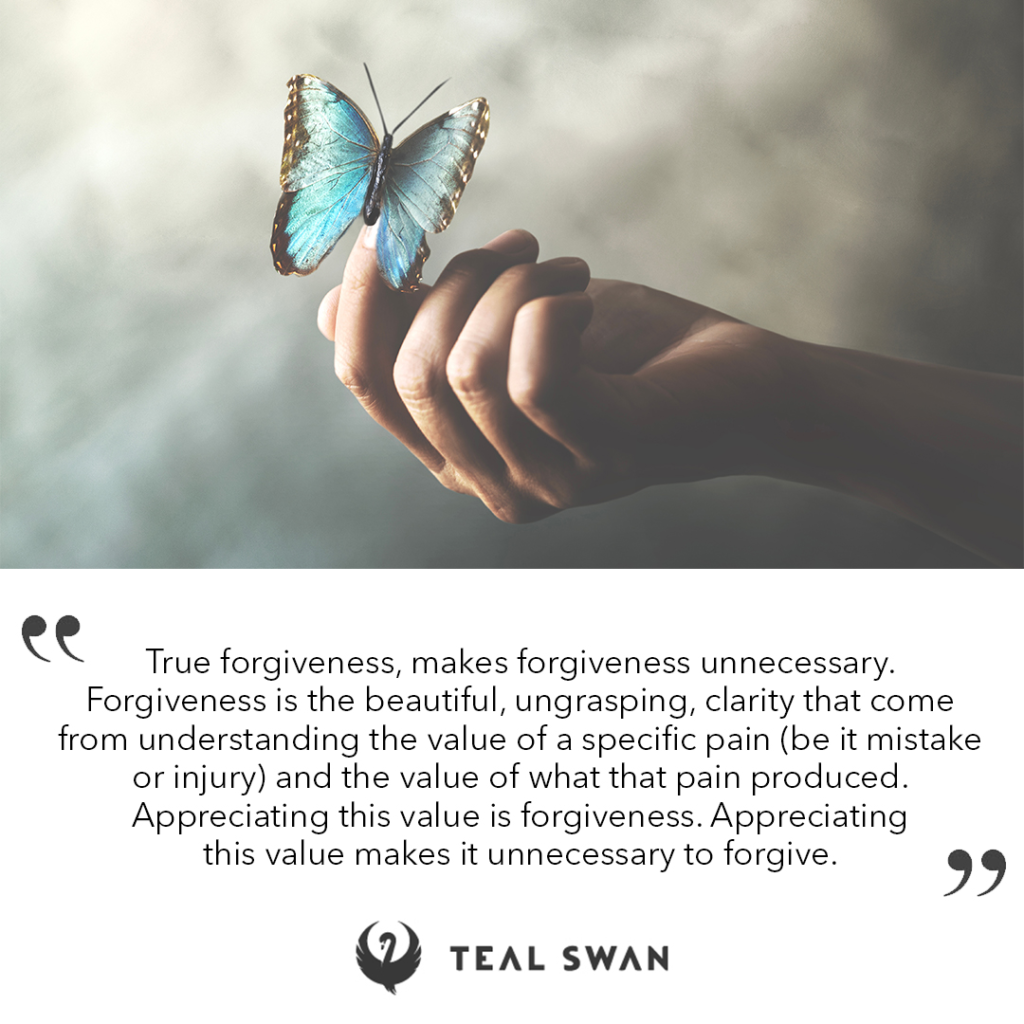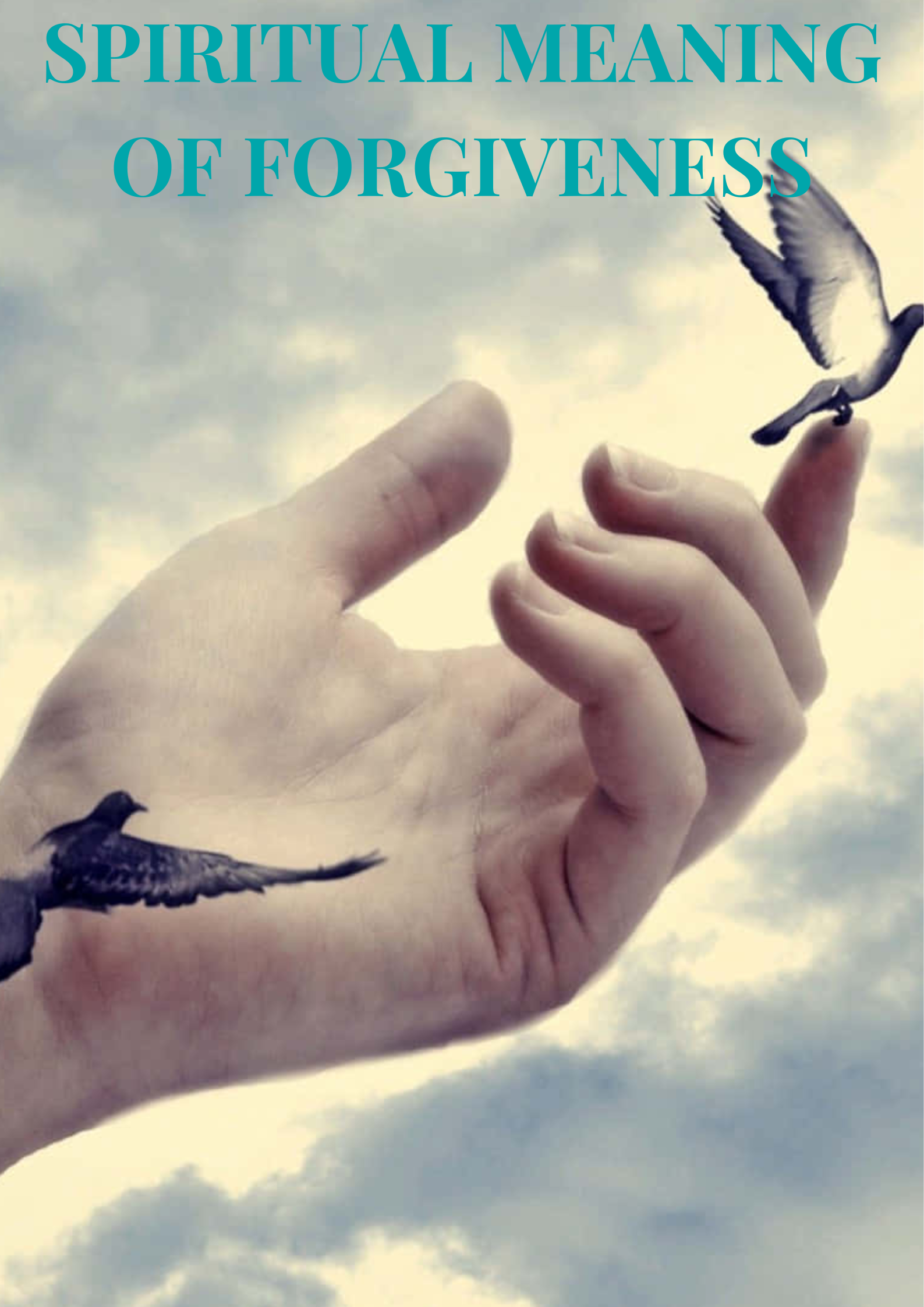Table of Contents
Holding a Grudge Doesnt make you strong; it makes you bitter.
Forgiving doesn’t make you weak; it sets you free
Dave Willis
Spiritual Meaning of Forgiveness
Forgiveness, a profound act of letting go of resentment and anger towards someone who has wronged us, is a cornerstone of spiritual growth. At its core, forgiveness is not about condoning the hurtful actions or forgetting the pain inflicted, but about freeing ourselves from the chains of bitterness that bind our spirit.
Know More about Forgiveness: The Healing Power of Self-Forgiveness: 13 Forgiving Yourself Books to Transform Your Life
The concept of forgiveness transcends religious and cultural boundaries, making it a universal principle. It’s often described as an act of grace, a gift we give to ourselves that allows us to heal and move forward. Spiritually, forgiveness is viewed as a path to inner peace and enlightenment. By forgiving, we release negative emotions that can cloud our judgment and hinder our personal development.
One of the key aspects of forgiveness in spiritual growth is the realization that holding onto anger and resentment harms us more than it does the offender. These negative emotions can create a toxic environment within our minds and bodies, leading to stress, anxiety, and even physical ailments. Forgiveness, on the other hand, fosters a sense of calm and clarity, promoting overall well-being.
Spiritually, the act of forgiving others is seen as a way to emulate divine compassion and mercy. Many religious traditions, including Christianity, Buddhism, and Islam, emphasize the importance of forgiveness as a means to attain spiritual purity and closeness to the divine. For instance, in Christianity, the Lord’s Prayer includes a plea for forgiveness and the strength to forgive others, highlighting its significance.
Moreover, forgiveness is integral to personal growth and self-awareness. It encourages introspection, helping us to understand our faults and imperfections. This self-reflection can lead to a more profound sense of empathy and compassion for others, fostering stronger, more meaningful relationships.
Forgiveness is a powerful tool for spiritual growth. It liberates us from the burden of negative emotions, promotes mental and physical health, and aligns us with higher spiritual values. By embracing forgiveness, we open ourselves to a path of healing, peace, and profound personal transformation.
Understanding Forgiveness
Forgiveness, a fundamental human virtue, involves letting go of resentment and the desire for revenge towards someone who has caused harm. It’s a conscious, deliberate decision to release feelings of anger and bitterness, regardless of whether the offender deserves it. Forgiveness doesn’t mean forgetting the offence or excusing the wrongdoing; instead, it means freeing oneself from the emotional burdens associated with the hurt.
In a general context, forgiveness is crucial for personal well-being and mental health. Holding onto grudges can lead to prolonged stress, anxiety, and depression. By forgiving, individuals can break free from the cycle of negative emotions and achieve a state of inner peace. This act can improve relationships, reduce conflict, and promote a more harmonious social environment. It fosters empathy, understanding, and the ability to move forward without the weight of past grievances.

In a spiritual context, forgiveness takes on an even deeper meaning. It is seen as a path to spiritual liberation and enlightenment. Many spiritual traditions view forgiveness as essential for aligning with higher moral and ethical values. For instance, in Christianity, Jesus teaches forgiveness as a reflection of divine love and mercy. The act of forgiving others is seen as emulating God’s grace and is central to the faith’s teachings.
Similarly, in Buddhism, forgiveness is integral to achieving a peaceful mind. It involves letting go of anger and hatred, which are seen as obstacles to spiritual growth. The Dalai Lama emphasizes that forgiveness is a practice of compassion and wisdom, crucial for attaining inner tranquillity.
In Hinduism, forgiveness is equally significant. The concept of “Kshama” (क्षमा), meaning patience and forgiveness, is a vital virtue. Hindu scriptures like the Mahabharata and the Ramayana emphasize the importance of forgiveness as a means to attain peace and spiritual growth. It is believed that holding onto anger and resentment binds the soul in the cycle of karma. By practising forgiveness, individuals can purify their hearts and minds, leading to liberation (moksha). Forgiveness in Hinduism also involves a deep understanding of the law of karma, where one recognizes that holding grudges or seeking revenge perpetuates negative karmic cycles.
Forgiveness in the spiritual sense also involves forgiving oneself. This aspect is vital for personal growth and spiritual development, as it allows individuals to accept their imperfections and learn from their mistakes. Self-forgiveness fosters self-compassion and paves the way for genuine transformation and growth.
In conclusion, forgiveness is a multifaceted concept that is essential both in general life and in spiritual practice. It promotes emotional well-being, enhances relationships, and is a vital component of spiritual growth and enlightenment. By embracing forgiveness, individuals can achieve a more peaceful, compassionate, and fulfilled life.
The Crucial Role of Forgiveness in Inner Peace and Spiritual Well-Being
Forgiveness is a cornerstone of achieving your inner peace and spiritual well-being. It involves letting go of resentment, anger, and the desire for revenge towards someone who has wronged you. By releasing these negative emotions, you can maintain mental and emotional health, fostering a sense of tranquillity and spiritual fulfilment.

One of the primary reasons forgiveness is crucial for your inner peace is its ability to alleviate emotional burdens. Holding onto grudges and resentment can create a persistent state of stress and tension. This emotional turmoil affects not only your mental health, leading to anxiety and depression but also your physical well-being, contributing to conditions such as high blood pressure and weakened immune function. By forgiving, you free yourself from these detrimental effects, allowing your mind and body to relax and heal.
Explore Further: Living Without Regrets: 6 Powerful Strategies for a Happier Life
From a spiritual perspective, forgiveness is a path to liberation and enlightenment. Many spiritual traditions emphasize forgiveness as a means to purify the heart and soul. In Christianity, Jesus’ teachings highlight forgiveness as a reflection of divine love and grace. Similarly, in Buddhism, letting go of anger and resentment is seen as essential for achieving a peaceful mind and spiritual growth. Hinduism also values forgiveness, viewing it as a way to break the cycle of karma and attain spiritual purity.
Forgiveness fosters empathy and compassion, which are vital for your spiritual well-being. By understanding and empathizing with those who have wronged you, you cultivate a deeper sense of connection and compassion. This shift in perspective not only improves your relationships but also aligns you with higher spiritual values of love, kindness, and mercy.
Moreover, self-forgiveness is equally important. Accepting your own mistakes and imperfections is a crucial step towards personal growth and spiritual development. It allows you to learn from your experiences, fostering self-compassion and a more profound sense of inner peace.
In conclusion, forgiveness is indispensable for your inner peace and spiritual well-being. It helps you release negative emotions, promotes mental and physical health, and aligns you with higher spiritual values. By embracing forgiveness, you open yourself to a path of healing, compassion, and profound personal and spiritual transformation.
Delving Deeper into the Spiritual Aspects of Forgiveness
Forgiveness, beyond its surface-level definition, holds profound spiritual significance across various traditions and beliefs. At its core, forgiveness transcends mere pardon; it embodies a transformational journey towards higher consciousness, inner peace, and spiritual enlightenment.
Discover On: Transform Your Life: 15 Powerful Prioritise Yourself Quotes
Spiritually, forgiveness is rooted in your recognition of interconnectedness and unity. It acknowledges the inherent divinity within every being and invites you to embrace the understanding that you are all interconnected threads in the fabric of existence. By forgiving others, you honour this sacred interconnectedness and affirm your commitment to collective healing and harmony.

Furthermore, forgiveness is a practice of surrender and acceptance. It entails relinquishing your ego’s need for control and judgment, and instead, surrendering to the flow of divine grace. In this surrender, you open yourself to the transformative power of love and compassion, allowing them to guide you towards spiritual liberation.
Forgiveness also involves a profound shift in perception. It invites you to see beyond surface-level appearances and recognize the inherent goodness within every soul. Through the lens of forgiveness, you view others with compassion and empathy, understanding that their actions are often rooted in pain and ignorance. This shift in perception fosters a deeper sense of unity and oneness, dissolving the barriers that separate you from one another.
Moreover, forgiveness is a journey of self-discovery and inner healing. As you extend forgiveness to others, you simultaneously offer yourself the gift of self-forgiveness. By releasing the grip of self-judgment and guilt, you embrace your inherent worthiness and reclaim your divine essence. In this act of self-love and acceptance, you awaken to the limitless potential within you and step into your true power as a spiritual being.
Forgiveness is a sacred practice that transcends the boundaries of time and space. It is a gateway to higher consciousness, inner peace, and spiritual awakening. By delving deeper into the spiritual aspects of forgiveness, you embark on a transformative journey towards wholeness and unity with the divine.
Exploring the Healing Power of Forgiveness for Emotional Wounds and Mental Health
In your journey of healing, forgiveness emerges as a powerful balm for emotional wounds and a catalyst for improving your mental health. When you choose to forgive, you embark on a path of liberation from the burdens of resentment and anger that weigh heavy on your heart.
Check This Blog: What is Spiritual Practice? 6 Awesome Tips to Start Your Spiritual Journey
Forgiveness is a profound act of self-love and compassion. By releasing the grip of past hurts and grievances, you free yourself from the chains of negative emotions that bind you. This liberation allows you to experience a sense of lightness and inner peace, creating space for healing to take place.

Emotional wounds, whether inflicted by others or self-inflicted, can fester and deepen over time if left unaddressed. Holding onto grudges and resentment only serves to perpetuate your pain, feeding into a cycle of negativity that erodes your mental well-being. However, by embracing forgiveness, you disrupt this cycle and open yourself to the possibility of healing.
Forgiveness also has profound effects on your mental health. Research has shown that practising forgiveness can reduce symptoms of depression, anxiety, and stress. By letting go of negative emotions, you create room for positive emotions such as joy, gratitude, and peace to flourish within you. This shift in emotional balance can significantly improve your overall mental health and well-being.
Moreover, forgiveness enhances your resilience in the face of adversity. When you cultivate a forgiving attitude, you develop greater emotional flexibility and adaptability, allowing you to navigate life’s challenges with grace and equanimity. Instead of becoming ensnared in bitterness and resentment, you approach difficulties with a sense of openness and acceptance, finding strength in your ability to forgive.
In conclusion, forgiveness is a transformative practice that holds the power to heal emotional wounds and uplift your mental health. By choosing to forgive, you reclaim your inner peace and empower yourself to lead a more fulfilling and resilient life. Embrace forgiveness as a sacred journey of self-discovery and healing, and watch as it transforms your heart and mind with its profound grace.
Real-life stories of Spiritual Healing Through Forgiveness
stories of forgiveness stand as shining examples of resilience, transformation, and spiritual growth. Here are two poignant accounts of individuals who found profound healing through the act of forgiveness:
Nelson Mandela’s Journey to Reconciliation
Nelson Mandela, the revered leader of South Africa’s anti-apartheid movement and the country’s first black president, exemplifies the transformative power of forgiveness. After spending 27 years in prison for his activism against apartheid, Mandela emerged not with bitterness, but with an unwavering commitment to reconciliation and forgiveness. He famously extended a hand of forgiveness to his former oppressors, advocating for unity and reconciliation instead of revenge. Mandela’s forgiveness not only helped heal the wounds of a divided nation but also inspired people worldwide to embrace forgiveness as a path to peace and reconciliation.
The Amazing Grace of Corrie Ten Boom
Corrie ten Boom, a Dutch Christian who, along with her family, helped many Jews escape the Nazis during World War II, endured unimaginable suffering in Nazi concentration camps. Despite witnessing the death of her sister and enduring immense cruelty, Corrie’s faith in God led her to forgive her captors. After the war, she travelled the world sharing her message of forgiveness and reconciliation. In her famous book “The Hiding Place,” Corrie writes, “Forgiveness is an act of the will, and the will can function regardless of the temperature of the heart.” Her story continues to inspire countless individuals to choose forgiveness and extend grace even in the face of profound adversity.
These real-life examples illustrate that forgiveness is not a sign of weakness but rather a testament to the strength of the human spirit. Through forgiveness, individuals like Nelson Mandela and Corrie Ten Boom have experienced spiritual healing, liberation, and a profound sense of peace that transcends the pain of the past. Their stories remind us that forgiveness has the power to transform lives, heal wounds, and pave the way for a brighter, more compassionate future.
The Journey of Forgiveness
A Personal Process of Healing
Forgiveness is a journey—a deeply personal process of healing and liberation that unfolds within you. It’s not a one-size-fits-all approach but rather a path that you must navigate at your own pace, guided by your inner wisdom and strength.
Discover Yourself: Present-Moment Awareness: 14 Awesome Techniques For Nurturing Motivation From Heart to Mind
Acknowledge the Pain
The process begins by acknowledging the hurt and pain that you have experienced. Allow yourself to fully feel and process these emotions without judgment or suppression. This step is essential for laying the foundation for forgiveness.
Shift your Perspective
Begin to shift your perspective from one of victimhood to one of empowerment. Recognize that holding onto resentment and anger only perpetuates your suffering, while forgiveness offers you the opportunity to reclaim your power and freedom.
Cultivate Empathy and Compassion
Try to see the situation from the perspective of the person who wronged you. Understand that they too may be struggling with their own pain and suffering. Cultivate empathy and compassion towards them, recognizing their humanity and inherent worth.
Practice Self-Forgiveness
Extend the same compassion and understanding to yourself. Forgive yourself for any perceived shortcomings or mistakes you may have made. Remember that you are worthy of love and forgiveness, just as much as anyone else.

Choose to Let Go
Finally, make the conscious choice to let go of resentment and anger. Understand that forgiveness is not about condoning the actions of others but about releasing yourself from the emotional burden of carrying grudges. By letting go, you free yourself to experience peace, joy, and inner harmony.
Embrace the journey
Embrace the journey of forgiveness with patience and self-compassion. Know that it may not be easy, and there may be setbacks along the way. But with perseverance and an open heart, you can find healing, liberation, and profound inner peace through the transformative power of forgiveness.
Challenges to Forgiveness and How to Overcome Them
Forgiveness is a powerful and transformative process, but it is often fraught with challenges. Understanding these obstacles and adopting strategies to overcome them can help you navigate your path to forgiveness more effectively.

Common Obstacles to Forgiveness
- Deep Emotional Pain:
- The depth of your emotional pain can make forgiveness seem impossible. When you have been deeply hurt, the wounds may feel too raw to heal.
- Anger and Resentment:
- Anger and resentment can create a barrier to forgiveness. These emotions can consume your thoughts and make it difficult to let go of the hurt.
- Fear of Vulnerability:
- Forgiving someone can feel like you are making yourself vulnerable to being hurt again. This fear can prevent you from opening your heart to forgiveness.
- The belief that Forgiveness Condones Behavior:
- You may struggle with the idea that forgiving someone means excusing their behaviour. This misconception can hinder your ability to forgive.
- Lack of Empathy:
- Without understanding the other person’s perspective or recognizing their humanity, it can be challenging to extend forgiveness.
Strategies to Overcome These Obstacles
- Acknowledge Your Pain:
- Give yourself permission to feel and express your pain. Acknowledging your emotions is the first step toward healing.
- Shift Your Focus:
- Redirect your focus from the offender to your own healing. Recognize that forgiveness is about freeing yourself from the burden of negative emotions.
- Cultivate Empathy:
- Try to understand the other person’s perspective and the reasons behind their actions. This doesn’t excuse their behavior but can help you develop compassion.
- Practice Self-Compassion:
- Be kind to yourself and recognize that forgiveness is a process. It’s okay to take your time and move at your own pace.
- Seek Support:
- Talk to a trusted friend, therapist, or support group. Sharing your feelings can provide you with new insights and emotional relief.
- Reframe Forgiveness:
- Understand that forgiving someone does not condone their actions. It is about releasing yourself from the grip of resentment and moving forward.
- Engage in Forgiveness Practices:
- Engage in practices such as meditation, journaling, or prayer. These can help you process your emotions and foster a forgiving mindset.
By acknowledging these common obstacles and employing strategies to overcome them, you can navigate the path to forgiveness more effectively. Remember that forgiveness is a personal journey and a powerful tool for your emotional and spiritual well-being.
Conclusion
Embracing the True Meaning of Spirituality
Understanding the true meaning of spirituality is a deeply personal and transformative journey. It goes beyond religious practices and rituals, touching the very essence of our being and how we connect with the universe and each other. Spirituality is about seeking inner peace, understanding our purpose, and cultivating a life filled with compassion, love, and authenticity. It encourages us to look inward, reflect on our values, and embrace practices that nurture our souls.
As you navigate your spiritual path, remember that spirituality is not a destination but a continuous journey of growth and self-discovery. It’s about finding harmony within yourself and with the world around you, recognizing the interconnectedness of all life, and striving to live in alignment with your highest self. Whether through meditation, prayer, nature walks, or acts of kindness, the ways to explore and express your spirituality are as diverse as humanity itself.
Incorporating forgiveness into your spiritual practice can significantly enhance your journey. Forgiveness allows you to release the emotional burdens that hold you back, fostering a sense of peace and liberation. By letting go of resentment and embracing compassion, you open your heart to deeper connections and a more profound understanding of your spiritual nature.
We invite you to reflect on your own spiritual journey. How do you define spirituality, and what practices help you connect with your higher self? Share your insights and experiences in the comments below. Your story could inspire others on their path to spiritual growth and fulfilment. Let’s create a community where we support and learn from each other as we explore the rich and varied landscape of spirituality together and before leaving ask yourself:
Are you truly living in alignment with your spiritual values, or are there aspects of your life where you feel disconnected from your higher self?
Thank you for reading and contributing your thoughts. May your journey be filled with light, love, and profound spiritual discoveries.





Pingback: Finding Purpose in Retirement: 7 Awesome Ways Building a New Chapter of Meaningful Living - True Potential Quest
Pingback: Embracing Abundant Grace: 5 Incredible Tips to Unconditional Love and Acceptance - True Potential Quest
Pingback: Relationship with Self: Unlocking 8 Secrets to a Harmonious Self-Connection - True Potential Quest
Pingback: Embracing Aging: 10 Strategies for a Healthier, Happier Life - True Potential Quest
Pingback: Deconstructing Guilt: 5 Powerful Steps to Reclaim Your Life - True Potential Quest
Pingback: The Power of Silence: 8 Amazing Tips for Finding Peace in a Noisy World - True Potential Quest